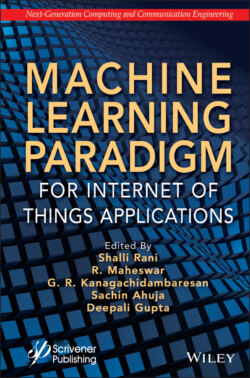Читать книгу Machine Learning Paradigm for Internet of Things Applications - Группа авторов - Страница 37
1.5.5 Integrated Command and Control Center
ОглавлениеThe Integrated Command and Control Center (ICCC) serves as the “Nerve Center” for Operations Administration, Day-to-Day Exception, and Crisis Management. It also provides insights through the analysis of diverse aggregated data sets to produce information for better planning and policy making. The ICCC is intended to aggregate information through various applications and sensors distributed across the region and then provide actionable information with sufficient representation for decision-making. Although few cities have begun implementing ICCC with necessary software, networks, and sensors under the Smart Cities Mission, they are at different stages of maturity as far as informed decision-making is concerned [19]. As these ICCCs are introduced, it is imperative to assess the sophistication of productivity using a common methodology across the world ensuring that improvements made by cities can provide sufficient benefits for cities and people in the future.
While few cities have begun to deploy ICCCs with the necessary software, networks, and sensors under the Smart Cities Mission, they are at different stages when it comes to informed decision-making. As these ICCCs are introduced, it is imperative to assess the sophistication of productivity using a common methodology across the world ensuring that improvements made by cities can provide sufficient benefits for cities and people in the future. The purpose of this evaluation system is to provide communities with a do-it-yourself toolkit to measure the maturity and efficacy of the Centralized Command and Control Center in municipal operations management, day-to-day emergency management, crisis management, preparation, and policy-making.
It is envisaged that the ICCCs would be the brain of metropolitan service, exception handling, and crisis management [19, 20]. Figure 1.6 shows the smart city control flow for command and control centers. Sensors and edge devices can collect and produce real-time data from different services such as water, waste management, electricity, accessibility, the urban environment, education, health, and safety.
Figure 1.6 Smart city control flow for command and control centers.
The ICCC used to the following:
1 Enhanced understanding of circumstances by providing information through sensor deployment across the city for civic officials through urban functions.
2 Standardizing urban response protocol by developing modern protocols for repeated incidents, complaints, and requirement scenarios.
3 Strengthen cooperation inside and beyond various agencies local urban bodies and municipal authorities.
4 Institutionalization of daily activities decision-making guided by evidence and in the case of a crises around the city level—from the owners to the city managers.
5 Engaging on-site service workers in dealing with social concerns and residents’ complaints.
